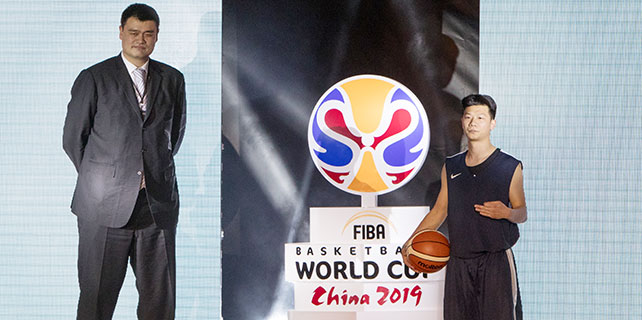Shortening the journey to championships
China could see the rise of the next Feng Shanshan within five years.
Li Hong, executive director of China LPGA Tour Ltd, made that prediction during an exclusive interview with China Daily on Sunday.
Feng, ranked No 4 in the world, claimed the Chinese mainland's first major title when she won the LPGA Championship in 2012. She also won bronze at last summer's Rio Olympics, and her success has driven the game's rise in the world's most populous country.
Following in Feng's footsteps, US LPGA Tour regulars Lin Xiyu, Feng Simin and Yan Jing, Japan LPGA Tour regular Shi Yuting and talented amateur Wang Ziyi are all showing promise.
Dreaming of becoming the nation's next star, more than 14,000 teenagers have registered with the China Golf Association's junior ranking system.
"China will surely grow into a golf power as we have a large and solid foundation to support the rise of players to the top, just like in table tennis," said Li.

Nurturing the next Feng will be different, but more sustainable, she added.
"Professional golf training was much more elite in the past and involved selecting the most talented seedling and investing the best resources to breed into a top player in the world. But now we want to start building from the foundation," Li said.
"China spent the past 10 years cultivating an Olympic golf champion and will spend the next 10 years on developing our golf industry."
The country's crackdown on corruption in the past few years has impacted the industry, with the number of golf courses decreased from 683 to 496.
"That is actually good for the industry as those courses that were closed were illegal," Li said. "Now it's time for China's golf industry to embark on healthy, sustainable development."
Golf can drive the development of many other industries, such as tourism and education. In the United States, it contributes about $70 billion to the country's GDP, a size that only a few other events such as soccer and winter sports can match.
"In China, the golf industry's value is far from being fully tapped," Li said. "The public used to mistake golf as a sport for the rich, but they are gradually changing the stereotype as technologies and golf courses provide people with an easier, more affordable access to the game."
For example, with equipment like practice nets, artificial putting greens and golf simulators, people don't necessarily need to go to a course to hone their skills.
"China can learn from the US to take advantage of the green space in communities or transform wastelands into public courses. It is good for the environment and public health and can create tax revenues," Li said.
Less than half of the 10,000-plus golf courses in the US are 18 holes, with the remaining being community courses that have only nine, six or even three holes, depending on how much green area is utilized.
"There are no public golf courses in China yet, but we have so many green areas in communities and wastelands that can be transformed," said Li. "The government can consider issuing preferential tax policies to encourage building public golf courses."
There are about three million golfers in China, and about 10 percent of them play frequently, according to Forward Group, a Shenzhen-based sports management company.
The golf industry expects over 10 million Chinese players within the next three years, thus seeing one million frequent players, said Li.
"People who can play golf have a wide age range, from a three-year-old to a 90-year-old. And the sport benefits both their physical health and their mental well-being.
"When golf truly becomes popular in China, we won't wait long to see the rise of the next Feng Shanshan ... probably within five years."
Rankings
Chinese mainland's world-ranked female golfers, as of March 20:
Feng Shanshan: No 4
Lin Xiyu: No 81
Yan Jing: No 152
Feng Simin: No 212
Shi Yuting: No 222
Zhang Weiwei: No 296
Pan Yanhong: No 369
Li Jiayun: No 370
xujingxi@chinadaily.com.cn
|
From left: China's new generation of female golfers includes Feng Simin, Lin Xiyu, Wang Ziyi, Shi Yuting and Yan Jing. They are all talented, but still have a long way to go to match the success of the nation's No 1 Feng Shanshan, who is currently ranked No 4 in the world. Provided To China Daily |

















